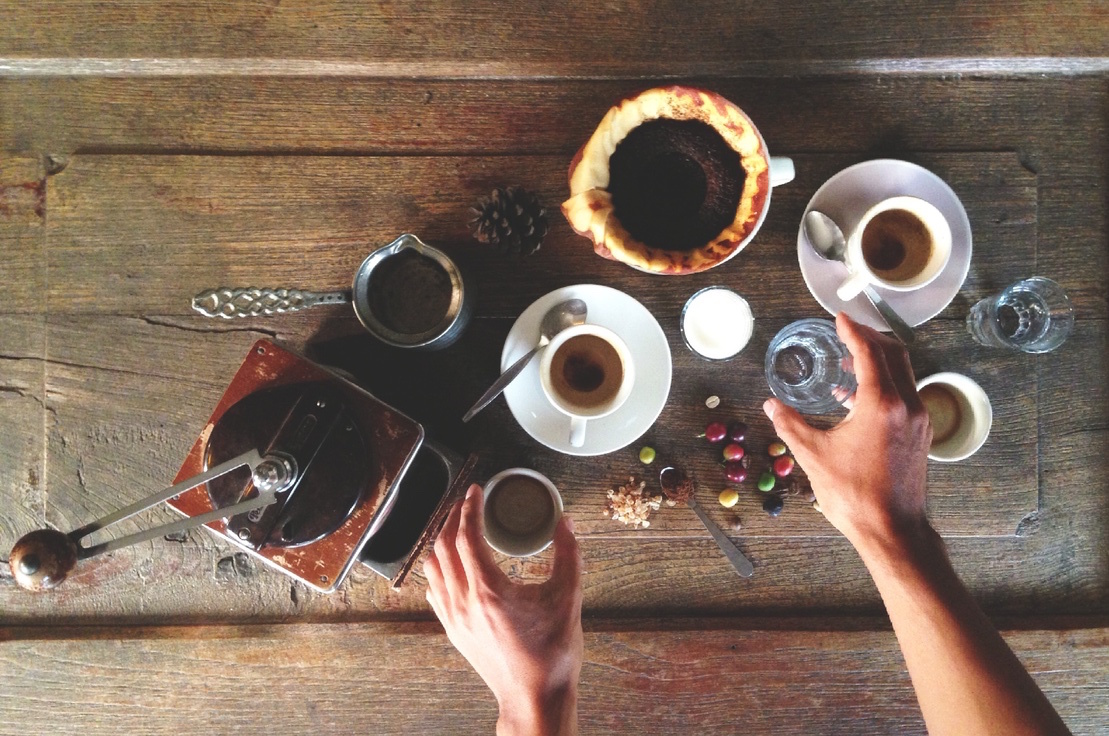Drink coffee diuretic, easy to dehydrate? American Medical College: it doesn't hurt to drink this way.

For professional baristas, please follow the coffee workshop (Wechat official account cafe_style)
Have you ever heard of the saying that it takes 1.5 cups of water to prevent dehydration from drinking a cup of coffee? There are many health messages often mention that caffeine in coffee and tea has a diuretic function, not only can not be used as a rehydration drink but may also lead to dehydration. If you want to read the relevant literature, it can even be traced back to 1928, the international community has published verification papers in support of this argument.
However, as early as 2005, the National College of Medicine (IOM) published a reference Guide for the intake of Water, potassium, Sodium, Chloride and Sulfate (Dietary Reference Intakes for Water, Potassium, Sodium, Chloride, and Sulfate), which completely negated the theory that caffeine can lead to dehydration.
American Institute of Medical Research: people with intake habits will not increase their urine output under non-extreme conditions.
IOM's team once asked people with caffeine habits and people without caffeine habits to take urination tests. Non-caffeine addicts did increase their urination after taking caffeine capsules containing 180 to 240 milligrams, but those who normally consumed caffeine did not increase their urination at all within 24 hours. IOM further said that unless there is no caffeine at all for 1 to 2 days, or up to 624mg of caffeine a day, people with normal caffeine habits will urinate more.
If you don't drink boiled water for three days, the urine output, salt content, kidney function and water content in the body are normal.
IOM also recruited 27 healthy adult men to use two drinking patterns: the first was that of the 2-3 litres of water consumed by adult men a day, one-third drank boiled water and the remaining two-thirds drank juice, coffee and other drinks; the second was not drinking boiled water, but only juice, coffee and other drinks. After each model lasted for three days, the men's urine output, salt concentration, kidney function and estimated water content were measured, and it was confirmed that neither of the two drinking patterns affected any of these values.
Three or five cups of coffee will not cause dehydration.
As a result, IOM said that as long as the daily intake of caffeine does not exceed 200,000,400 milligrams (about 3 to 5 cups of coffee), these drinks can replace boiled water to help the body with water, and there is no doubt about causing dehydration. Only alcoholic beverages are not included in this experiment, so IOM still does not advise people to drink alcohol to replenish water.
Caffeine has a weak diuretic effect when drinking moderate amounts of caffeine is similar to drinking water!
Stella, a Taiwanese dietitian, has also said that in fact, most studies have found that our urine output increases temporarily unless we consume as much as 250 to 300 milligrams of caffeine (about 2 to 3 cups of coffee) at a time. In addition, an analytical study published by the University of Connecticut in 2002 pointed out that the amount of urine excreted when drinking coffee is 84% of the original consumption, while drinking boiled water is 81%. The diuretic effect of caffeine can be said to be similar to that of water.
Important Notice :
前街咖啡 FrontStreet Coffee has moved to new addredd:
FrontStreet Coffee Address: 315,Donghua East Road,GuangZhou
Tel:020 38364473
- Prev

The Origin of Yunnan small Coffee: a forest of careless beans in the birthplace of coffee in China
For the exchange of professional baristas, please follow the French missionary Tian Deneng, the French missionary who planted the first coffee in the coffee workshop (official Wechat account cafe_style). 113 years ago, a French missionary inadvertently introduced China's first coffee tree. It is incredible that the place of cultural exchange between China and the West, which was the first place to introduce coffee and take coffee as the carrier, turned out to be a place of risk.
- Next

The first cafe in China appeared in Guangzhou. Lu Xun doesn't really like coffee.
Communication of professional baristas Please follow the girls of the Republic of China who drink coffee in the coffee workshop (Wechat official account cafe_style) A silver coffee pot made for export in China at the end of the Qing Dynasty. The coffee mugs of the last years of the Republic of China are printed with the head of the Queen of England and the advertising of canned coffee during the period of the Republic of China. Today, let's talk about coffee, a petty-bourgeois drink popular all over the world. There are not many drinks popular all over the world.
Related
- What is the difference between Indonesian Sumatra Mantinin coffee and gold Mantinin? How to distinguish between real and fake golden Mantelin coffee?
- What does bypass mean in coffee? Why can hand-brewed coffee and water make it better?
- Unexpected! Ruixing Telunsu lattes use a smoothie machine to foam milk?!
- % Arabia's first store in Henan opens into the village?! Netizen: Thought it was P's
- Does an authentic standard mocha coffee recipe use chocolate sauce or powder? Mocha Latte/Dirty Coffee/Salty Mocha Coffee Recipe Share!
- What is the difference between Vietnam egg coffee and Norway egg coffee? Hand-brewed single product coffee filter paper filter cloth filter flat solution!
- What is the difference between sun-cured and honey-treated coffee? What are the differences in the flavor characteristics of sun-honey coffee?
- How to make Italian latte! How much milk does a standard latte use/what should the ratio of coffee to milk be?
- How to make butter American/butter latte/butter Dirty coffee? Is hand-brewed coffee good with butter?
- Is Dirty the cold version of Australian White? What is the difference between dirty coffee/decent coffee and Australian white espresso?

